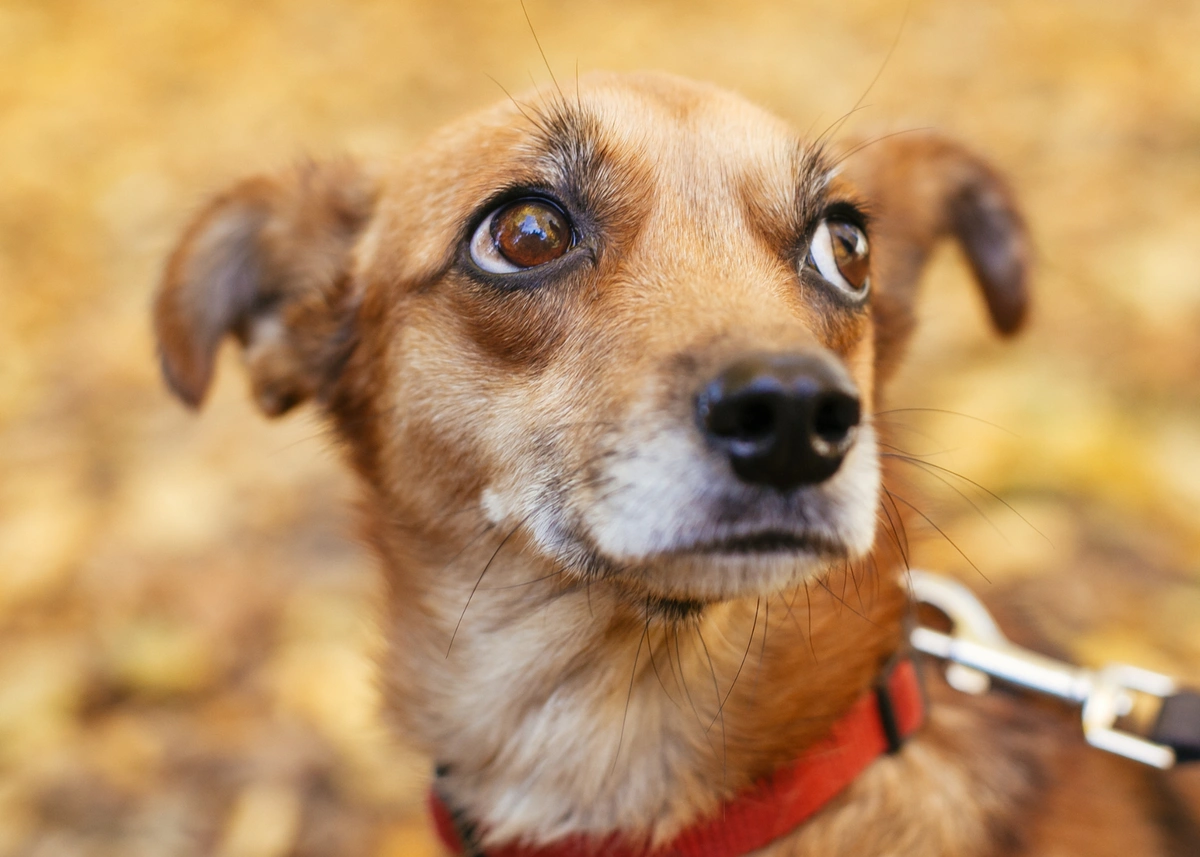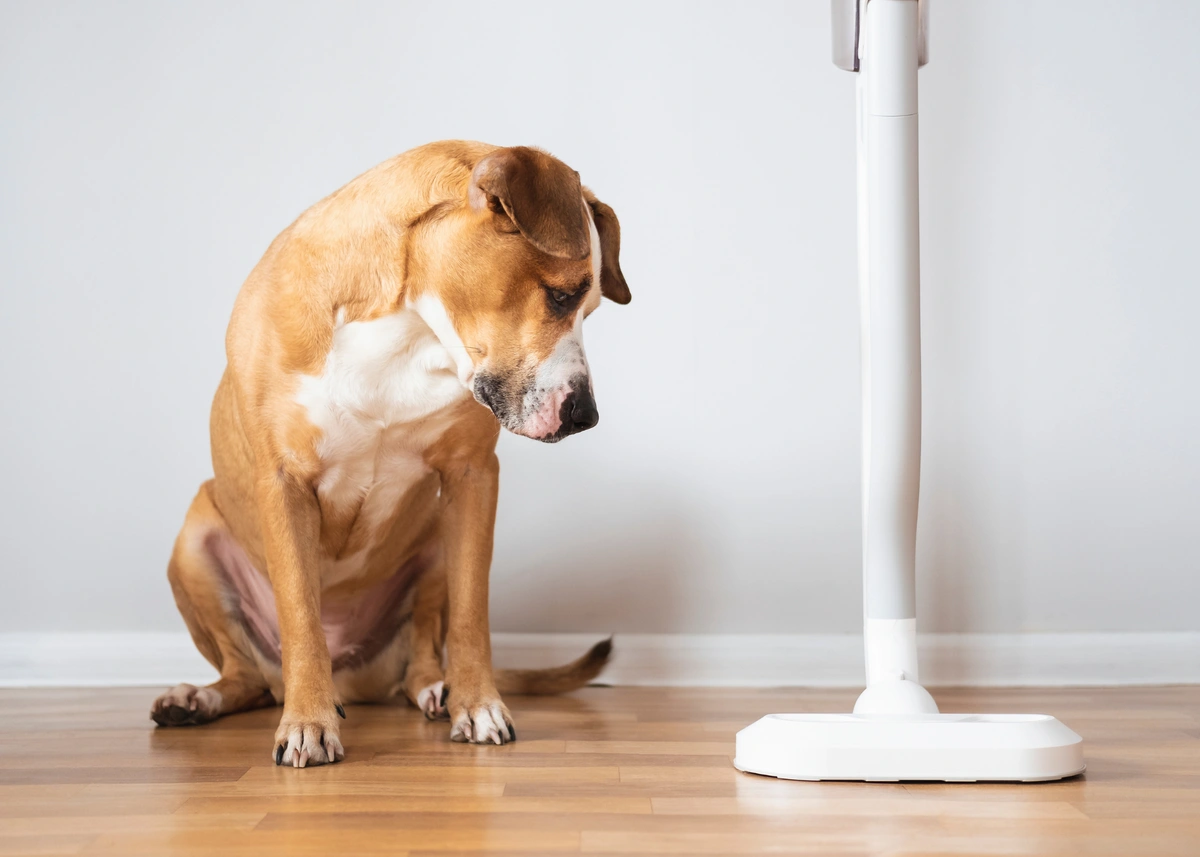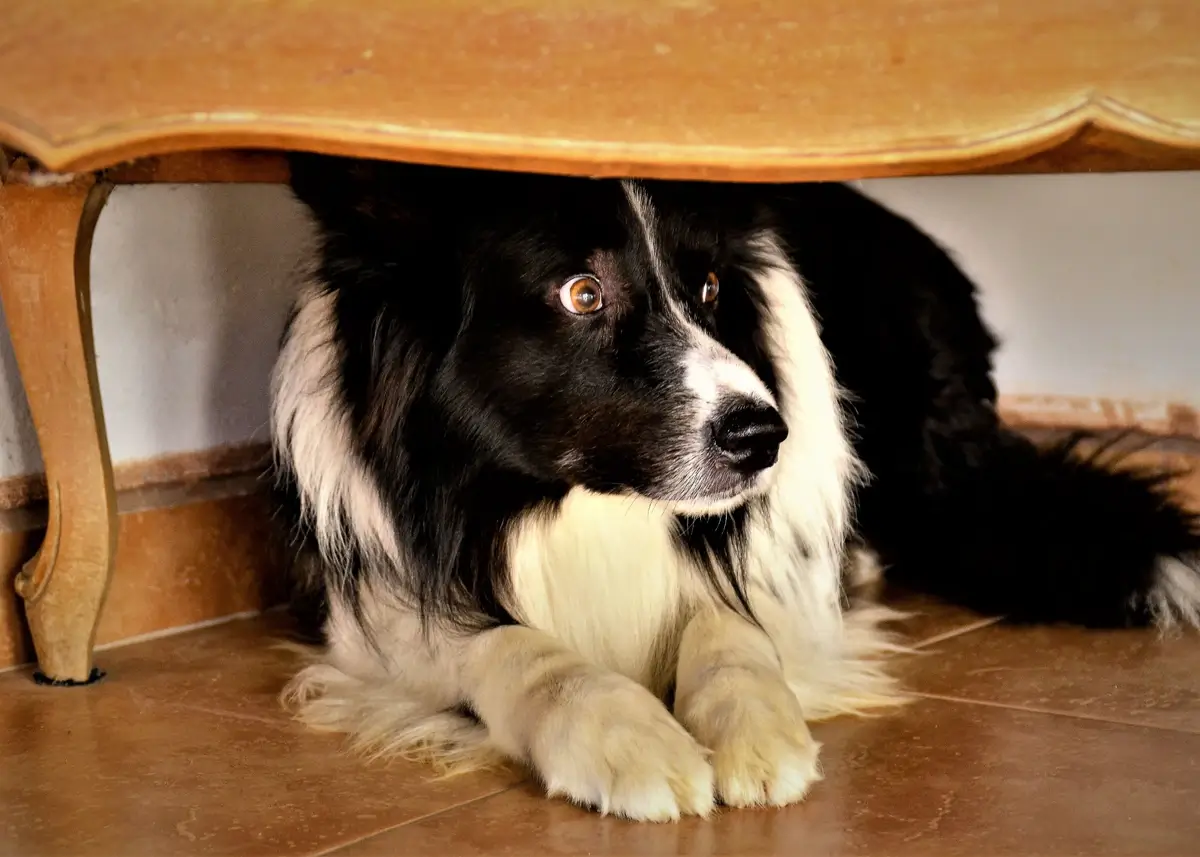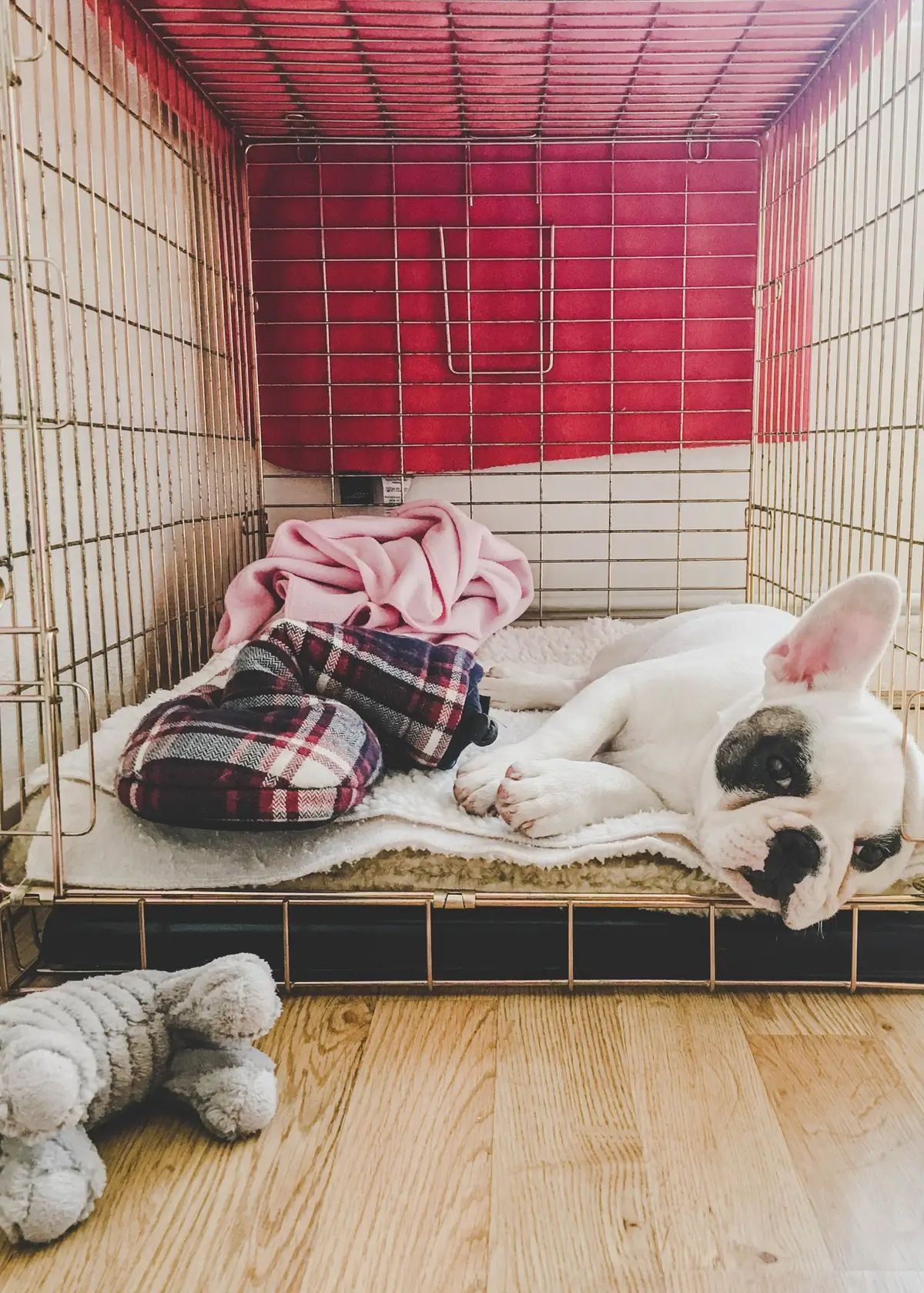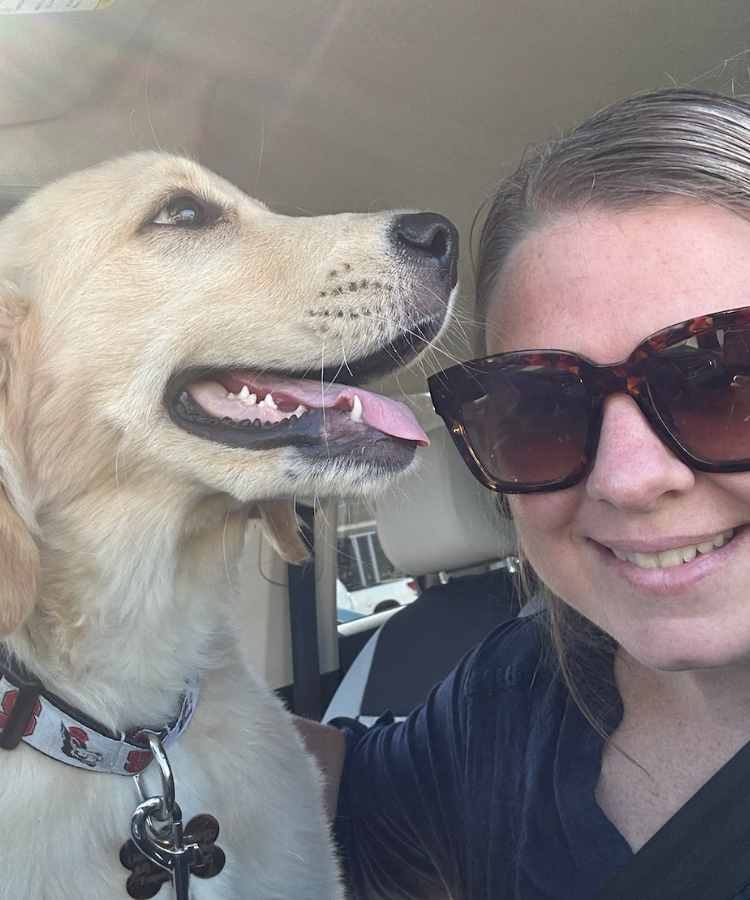Welcoming a new puppy into your home can be both exciting and daunting. In a perfect world, we’d live harmoniously with our puppies, enjoying our strong bond and beautiful relationship. Your puppy would feel secure, happy, and content.
However, sometimes things don’t go the way we have planned and desperately wanted. Even if you feel emotionally connected and bonded to your puppy, he or she may be having a difficult time regulating fear and stress. It’s important to be aware of how to prevent stress in puppies to ensure they feel safe and happy in their new environment.
We’ve explored how to deal with separation anxiety in puppies, but we wanted to dive deeper into related emotions on how fear and stress can affect your puppy and how to address this issue moving forward as you continue to try and raise a happy, healthy puppy.
Learn about the complexities of canine behavior and explore how fear and stress manifest in puppy behavior — from showing physical signs such as excessive barking or trembling, to developing problems like aggression later on down the road.
Why is My Puppy Afraid and Stressed Out?
Puppies are curious and energetic creatures who love to explore their surroundings. However, some situations or objects can scare them and make them anxious.
It's important for puppy owners to pay attention to the behavior changes in their puppies, especially when they start exhibiting signs of fear or stress. But how do you identify what's causing these sudden changes in behavior? Asking yourself the obvious question of, "Wait, why is my puppy afraid or stressed?" is a good starting point. You can’t address the problem without pinpointing the cause!
Perhaps there's been a change in their environment, a new routine, or a loud noise that's triggered their anxiety. It's crucial to recognize the source of their fear or stress so that you can take appropriate actions to help them feel more comfortable and secure. Your puppy is counting on you to provide them with a sense of safety and comfort in their world.
11 Factors that can stress out your puppy
Here are 11 things that a puppy might be scared of and the reasons why:
1. Loud noises (such as thunder, screaming children, or fireworks): Puppies have sensitive ears, and loud noises can be overwhelming and frightening to them. The sudden and unexpected nature of these sounds can also increase their fear.
2. Strangers: Puppies may feel threatened by unfamiliar people and dogs. This is because they haven't had a chance to socialize or build trust with them yet.
3. Being alone: Puppies are social animals and thrive on companionship. Being left alone for an extended period can trigger separation anxiety, causing them to become fearful and distressed.
4. Other animals: Puppies may feel threatened by other animals, especially if they are bigger or more aggressive than them. They may perceive them as a potential danger and react defensively.
5. Cars (or other modes of transportation): Puppies may be fearful of cars or other vehicles due to their loud engines and movements. This fear can also stem from previous negative experiences, such as a traumatic car ride or going to the vet or boarding facility.
6. Large bodies of water: Some puppies are scared of water, especially if they haven't been exposed to it before. The vastness and unpredictability of large bodies of water can trigger a fear response.
7. Vacuum cleaners or other household appliances: The loud and unfamiliar noises made by vacuum cleaners or other household appliances can be unsettling and scary to puppies.
8. Being approached too quickly: Puppies may feel intimidated if someone approaches them too quickly or invades their personal space. This can make them feel threatened and cause them to become fearful.
9. Being punished or reprimanded: Puppies thrive on positive reinforcement, and being punished or reprimanded can be distressing for them. It can cause them to associate certain behaviors or situations with fear and stress.
10. Changes in routine or environment: Puppies thrive on routine and familiarity. Any changes to their daily routine or environment can be stressful and scary for them, as they may not know what to expect.
11. Their shadow: That’s right – we threw in this one because you unfortunately might not discover the reason and may need additional help from your vet. You may be at a loss for why and just chalk it up to your puppy being fearful of his own shadow. Always call your veterinarian if you cannot identify any reason for your puppy to be acting afraid and stressed.
Signs of Fear and Stress in Puppies
Did you know that fear and stress can affect puppies in ways similar to humans? Many people mistakenly view puppies as mindless bundles of cuteness; however, it is important to understand how emotional distress affects their well-being just like it does ours.
Puppies are just like human babies in many ways and can experience fear and stress in response to various stimuli. This can severely impact their overall behavior and how they interact with you and the environment around them. When puppies feel uneasy or threatened, they are likely to exhibit certain behaviors that show their state of mind.
As pet owners, it is important to recognize the signs of fear and stress in puppies. This knowledge helps to identify when our four-legged friends are feeling discomfort or anxiety, and when to provide them with the care and attention they need. Learning to understand canine body language can really help dispel any misconceptions you may have about your puppy, such as only panting when hot or yawning when tired.
Here are some signs of fear and stress in puppies and why they occur:
Pacing and restlessness
When puppies are feeling stressed or fearful, they often pace and move around a lot. This behavior is due to the adrenaline rush that comes with the feeling of being on edge.
Excessive panting
When puppies are anxious or afraid, they may start to pant excessively. The reason for this is that panting helps them to regulate their body temperature and calm down.
Trembling
Puppies may shake or tremble due to anxiety or fear. This is because their nervous system is responding to the perceived threat or danger.
Excessive licking or chewing
Puppies may start to lick or chew excessively when they are feeling stressed or afraid. This behavior helps to soothe their nerves and cope with the anxious feelings they are experiencing.
Hiding
If a puppy is feeling fearful or stressed, he or she may retreat to a safe place like under the bed, the closet, or behind furniture. This behavior is a way for them to feel protected and secure. They may just try to hide their faces or shrink into a corner even though we can still see them!
Aggression
While puppies are usually friendly and playful, they may become aggressive when they are feeling threatened or afraid. They may bark, growl, or even snap at others to protect themselves.
Loss of appetite
Puppies may also lose their appetite if they are feeling anxious or stressed. This can be due to the adrenaline suppressing the digestive system, making it difficult for them to eat.
Excessive vocalization
Puppies may start to whine, yelp, or bark excessively when they are feeling afraid or stressed. This behavior is their way of expressing their discomfort and seeking attention. You may think they are trying out for the doggy opera with their dramatic renditions of how they really feel!
Dilated pupils
When puppies are under stress or feeling fearful, their pupils may dilate. This is due to the body releasing adrenaline, which prepares them for a fight-or-flight response.
Excessive sleeping
Puppies may also sleep more than usual when they are feeling stressed or afraid. This behavior is a natural coping mechanism to help them feel calm and rested.
It is essential for puppy owners to understand the effects of stress in puppies to help them manage their pet's anxiety and promote a healthier and happier life for canine companions.
Strategies for Alleviating Fear and Stress in Your Puppy
As responsible pet owners, it's important to understand these fears and take steps to reassure and comfort our puppies. Without proper care and attention, the emotional and physical toll of fear and stress can be detrimental to the well-being of puppies.
Once you’ve identified the reason or reasons why your puppy is afraid, now is the time to work on fixing the issue. This process will take time, and you may experience setbacks with one paw forward and two paws back. Keeping an open mind and being consistent will help the process.
Try these strategies to lessen your puppy’s fear and stress:
Create a calming space
One strategy for alleviating fear and stress in your puppy is creating a calming space. Providing your puppy with plenty of toys for enrichment and distraction can go a long way in keeping them occupied and making them feel comfortable. Separate the space away from the hustle and bustle, and make it cozy with a special blanket with your scent on it. Make sure the environment is free from potential hazards that could trigger fear, such as loud noises or sudden movements. By creating a safe and engaging environment, you can set up your puppy for a lifetime of stress-free happiness.
Positive reinforcement training
Use positive reinforcement methods to train and socialize your puppy. Reward them with treats, praise, and affection when they display positive behaviors or interact well with other dogs and people. This approach will help build their confidence and associate new experiences with positivity.
Gradual exposure to stimuli
Desensitization is a method that involves gradually exposing your puppy to the source of their fear in a controlled and positive manner. Introduce your puppy to new experiences and stimuli gradually. Whether it's meeting new people, going to new places, or experiencing different sounds, take it step by step. Allow your puppy to explore at their own pace, and never force them into situations that cause fear or stress. Gradual exposure can help them become more resilient over time.
Routine and predictability
Establish a consistent daily routine for your puppy. Dogs thrive on predictability, and having a schedule for feeding, playtime, walks, and rest will give them a sense of security. When your puppy knows what to expect, they will feel more at ease and less anxious.
Calming techniques
Teach your puppy calming techniques that can help them relax in stressful situations. One effective technique is deep, slow breathing. No, we’re not talking about turning your puppy into a yoga instructor, but there are some actions that will definitely help lower their heart rates. When you notice your puppy getting anxious, gently stroke them while speaking in a soothing tone and practice deep breathing yourself. This can have a calming effect on your puppy and help them regulate their emotions.
Play serene music
Music can have a soothing effect on a scared puppy, creating a sense of comfort and security. Gentle melodies and calming tunes can help lower a puppy's anxiety, reduce stress, and distract them from fearful stimuli. The rhythmic sounds can mimic a mother's heartbeat, providing a sense of familiarity and reassurance to your puppy.
Utilize special products
As long as you do your research and clear it with your vet first, there are products on the market that can help reduce fear and stress in your puppy.
Pheromone diffusers emit synthetic versions of calming pheromones, mimicking natural signals produced by lactating mother dogs. These diffusers can help calm dogs by reducing anxiety, fear, and stress, creating a more relaxed environment, and promoting a sense of security. Products containing CBD oils can also have a mellowing, calming effect.
Be patient
Remember, every puppy is unique, and what works for one might not work for another. Be patient, observant, and understanding of your puppy's individual needs and personality. If you notice persistent signs of fear or stress, consider seeking guidance from a professional dog trainer or a veterinarian with experience in behavioral issues. They can provide personalized advice and support to ensure your puppy grows up to be a confident and happy companion.
Puppies are adorable, but they can sometimes exhibit fearful behaviors that can be frustrating for their owners. Luckily, with the right techniques, it is possible to help reduce these behaviors and create a happier, more confident pup.
Pawrade Offers Confident, Happy Puppies
Speaking of confident puppies, Pawrade offers a variety of healthy, happy puppies for sale that will have you dreaming of paws scampering across the floor in excitement. You can get started building a strong bond with your puppy when you trust Pawrade to help you find your forever friend. Contact our Puppy Concierge team to learn more about our puppies.
